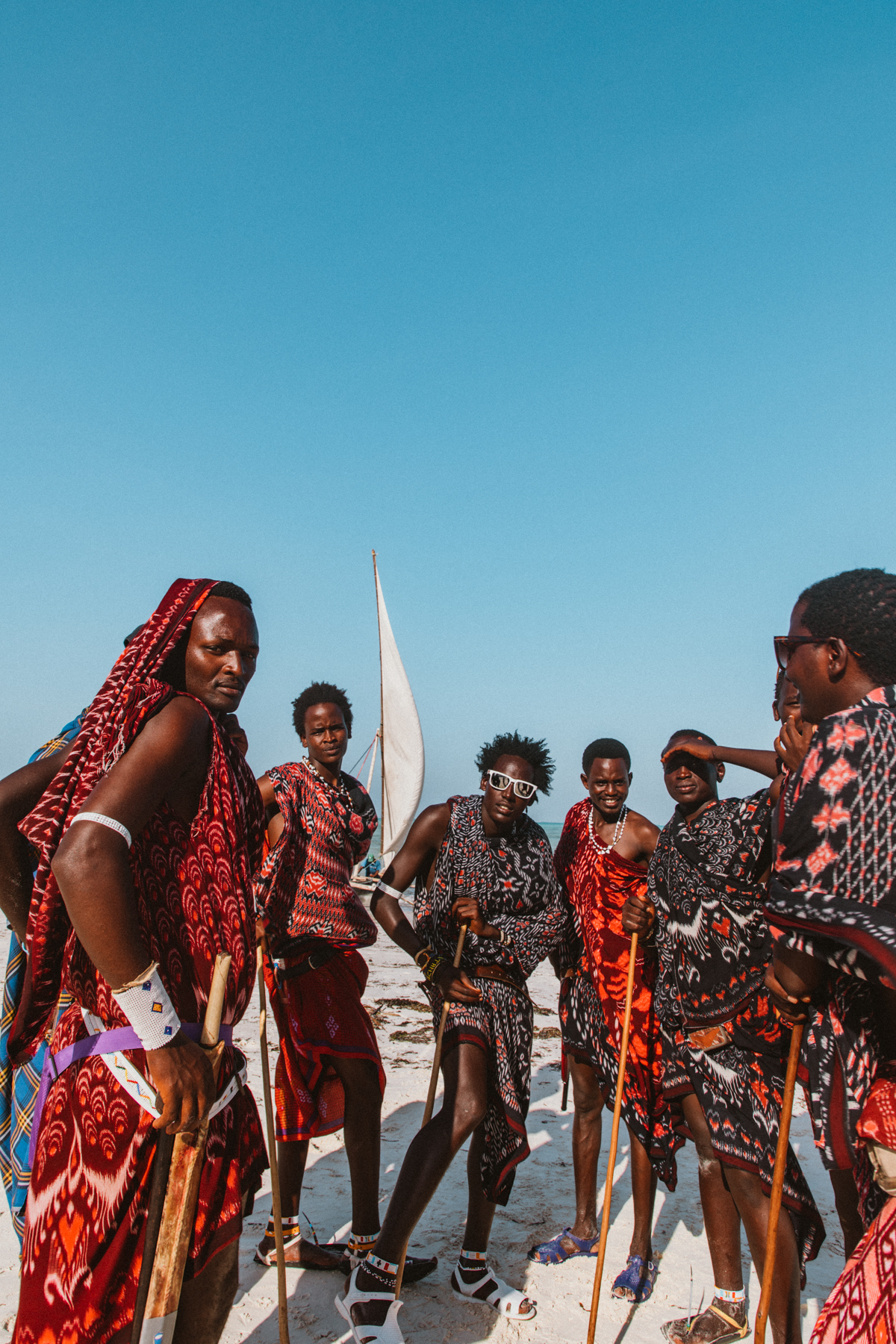I can’t believe it’s going on three years since I made my leap of faith and decided to move back to Africa.
I had no real plan, no real savings, and no real direction. The only thing I really had was passion and the only thing I knew for sure is that I would figure it out. I set out to take life by the horns, seek meaningful experiences, and expose myself to all of the richness that exists throughout this continent. And after all this time, I still feel like I’ve only just begun to scratch the surface. But in an effort to share more of the practical side of my journey (it’s not always 5 star brunches and picture perfect photo opps - though those do make for great Instagrams…), I thought it important to reflect a bit and share with you what I’ve learned from traveling through this incredible continent for as long as I have. The good, the bad, and the uncomfortable…
It’s Not That Hard. Well...Kinda. Here’s the truth: some African regions are much easier to travel to/through than others. For instance, East and Southern Africa have well-established travel infrastructures so countries here tend to be much easier to navigate than those in West and Central Africa. But don’t take this to mean that East/Southern Africa is better to travel in. West African countries like Ghana, Senegal, Côte d’Ivoire, and Nigeria - among many other - are definitely rising up to task. All regions on the continent have their pros/cons, so you’ll need to determine what exactly you want to get out of your experience before making a decision on where to visit. So long as you have patience and an open mind, you’re sure to be fine.
It’s Easier for Westerners to Travel Africa than Africans Themselves. From passport limitations (why is it easier for someone traveling with an American, European, or Australian passport to travel within Africa than say a Cameroonian?) to the financial barriers (most costs for leisure experiences are in USD or Euros, making it almost impossible for some locals to afford travel in their own home countries). I personally benefit from being able to travel on a US passport, but that wasn’t always the case. I’m aware there are plenty of Africans who do not have the privilege or ability to travel on a whim within the continent as I do, backpacking from country to country for months at a time with no return ticket. I understand that for some, the travel process must start weeks in advance, essentially proving to each embassy that you are worthy of their country (through months of financial documentations, confirmed accommodations + flights, and even proof of employment). Another thing to note are the outrageous costs for flights to and from neighboring countries (particularly in West Africa). It is so bad that it’s sometimes cheaper for Africans to fly to Europe, Asia, or The Americas than to simply go next door. Why is that? In recent years it has definitely gotten better, but we still have quite a ways to go.
Racism / The Notion of White Supremacy Exists. Yes, even in Africa. It’s difficult and uncomfortable to talk about, but the notion of white supremacy and after effects of colonialism, apartheid, and other systemic forms of racial prejudice are still ingrained in many African societies. What does this look like? Well, like in most other regions of the world; sometimes it’s subtle and other times it’s not. It’s when a black/African person enters a restaurant, hotel, store, etc that mostly caters to non Africans and is questioned why they are occupying that space as opposed to servicing them. Or when Africans give Africans terrible customer service but rush to cater to a non black person. Or the entitlement of non African tourists, expats, et al who expect to be treated better than locals thanks to their privilege...This is another sensitive and complex topic I want to dig deeper into and hope to navigate and expound on responsibly over time.
It’s Perfectly Safe. That is, if you use common sense and are street smart. The same basic rules of survival used in any other region should be applied here: pay attention to your surroundings, don’t be overly flashy, don’t carry an abundance of cash (or all your cash in one place), don’t brag about your belongings to people, don’t drink with strangers or get drunk at night in unfamiliar areas/places, etc. While there can be dodgy places and people to be cautious of (where in the world does this NOT exist?), in my experience people are generally kind and want to help or welcome visitors - not hurt them. Instead, you can expect friendliness in most countries you visit, openness and even what may sometimes seem like invasion of space or boundaries. People tend to be a bit more direct, so don’t be put off if you are teased (in jest), or given unsolicited advice and what may seem like inappropriate comments (oftentimes not intended to be). Don’t be offended if someone calls you fat (it may very well be a compliment), insists you need to eat more, or tries to marry you off to a family member or someone they know.
Even for a Solo Female Traveler? Yes. For the most part, I haven’t felt unsafe or in danger when traveling through the continent on my own. I think this mostly comes down to personality type and use of common sense/street smarts. I’m not a big party or nightlife person, so I’ve never gone out to clubs or bars on my own or with strangers during my travels within Africa or anywhere else in the world. I’m also an adventurous and open-minded person, so I’m typically not intimidated by new and unfamiliar cultures/places. One thing I never do is tell strangers I am traveling on my own (this obviously can make you a target), but found that my being alone in certain environments and situations always challenged expected gender roles There are some cities I would not recommend for solo female travel -- Marrakech being one of them. While absolutely beautiful, I had far too unfortunate experiences (both racially & gender driven) to feel completely safe on my own. As a female solo traveler, I would recommend you always do your own research ahead of time and choose your destinations wisely. A little tip I always give is to also wear a wedding band in some countries to avoid unwanted attention.
Being Multilingual Will Get You Far. English will get you far in most African countries, but being able to speak French, Portuguese, Swahili, Peul/Fula or any one of the many local languages will get you much further. It won’t always be necessary to learn the local language, but as a rule of thumb, I always try to learn a few phrases because it can be very handy. Not to mention, it typically makes people happy to know that you’re making the effort to learn about their culture.
Local food is the best. Eat as much local food as you can, and don’t shy away from street foods. Fried plantains, puff puff, soya, chapatis, samosas, ugali...if you see it, try it! Just make sure that before eating any meats or fish, you see it come straight off of the grill. Also, don’t be scared of eating traditional dishes. Some of them may not always look visually appealing, but they will almost always be delicious. If you can, always say yes to the invitation to eat in someone's home. It’s the way most Africans express hospitality, and you’re likely in for a real treat. With that said, the only foods I would say to avoid are unwashed thin skinned fruits and veggies, or eating in prep areas that look unclean.
Get Familiar with “TIA” (This is Africa). But not in the condescending way some expats use it. You are going to get a crash course in personal development, and the natural ingenuity most Africans have is sure to rub off on you. You are going to need patience. You are going to need to be assertive. You are definitely going to need to learn how to problem solve quickly and creatively. Things will sometimes fall apart, water might get cut off, and power outages will happen. Time is sometimes an illusion (don’t be surprised by extreme lateness or delays) and punctuality is arguably a myth in certain African societies - thanks mostly to the many cultural nuances and informal economies in several African cities. Wifi is not always readily available at the speeds you may be used to in other countries, and there can also be some random and unexplainable service outages. Be prepared to pay for internet service by data usage amount, and not a preset amount that allows for unlimited use. No matter how much research you do or plans you make, always be prepared to just go with the flow - the African way.















